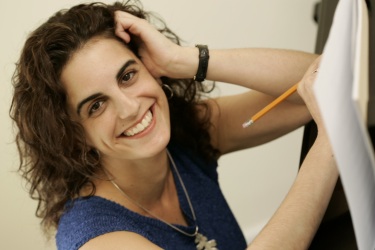Verge Ensemble at the Museum of American Art
By Stephen Brookes • The Washington Post • September 9, 2013
The Verge Ensemble is among the most thoughtful of Washington’s contemporary chamber music groups, and its program at the Smithsonian American Art Museum on Sunday afternoon was built on a fine premise: to explore the roots that much contemporary “serious” music has in folk, pop and even primitive music. It made for an intriguing if often low-key afternoon, a bit academic in tone (as Verge can sometimes be) but with some real gems — including a luminous account of John Cage’s “In a Landscape” and Russell Platt’s lyrical “Memoir” from 2010. Composer Stacy GarropThe concert (part of the museum’s excellent Steinway Series) opened with a gentle homage to the past: the beguiling “To A Wild Rose,” a 1896 work by the American romantic composer Edward MacDowell. Pianist Laurie Hudicek (a newcomer to Verge) turned in a fine if rather distant reading and was joined by flutist David Whiteside for the elegiac “In Memoriam WBW” by Elliott Schwartz, written for Whiteside’s late father. Schwartz’s music, to these ears, can sound airless and a bit pedantic, as if written in musical academese. But “Memoriam” was an evocative and quite lovely work, played by Whiteside with quiet affection.
Composer Stacy GarropThe concert (part of the museum’s excellent Steinway Series) opened with a gentle homage to the past: the beguiling “To A Wild Rose,” a 1896 work by the American romantic composer Edward MacDowell. Pianist Laurie Hudicek (a newcomer to Verge) turned in a fine if rather distant reading and was joined by flutist David Whiteside for the elegiac “In Memoriam WBW” by Elliott Schwartz, written for Whiteside’s late father. Schwartz’s music, to these ears, can sound airless and a bit pedantic, as if written in musical academese. But “Memoriam” was an evocative and quite lovely work, played by Whiteside with quiet affection.
Aaron Copland’s “Four Piano Blues” are great fun, balanced between sophistication and a kind of gentle biting wit, and Hudicek gave them a natural, straightforward reading — more cool light than burning fire. Gabriela Lena Frank’s “Four Pre-Inca Sketches” for flute and cello were colorful works built from wisps of sound and breath, and despite their often incantatory and primitive feel, the performance seemed, well, wispy and evaporated in the ears without much of a punch.
The afternoon clicked into gear when violinist Lina Bahn joined Hudicek and cellist Tobias Werner for Stacy Garrop’s “Silver Dagger” — a gorgeous and eloquent reworking of the old Appalachian folk song. Full of dark passions and slow-burning sensuality, it’s an irresistible work, and Bahn led the trio in a quietly ferocious, utterly convincing account.
The same players closed the afternoon with perhaps the most exuberant performance of the concert: Paul Schoenfield’s eclectic, uninhibited and completely delightful “Café Music.”


Reader Comments